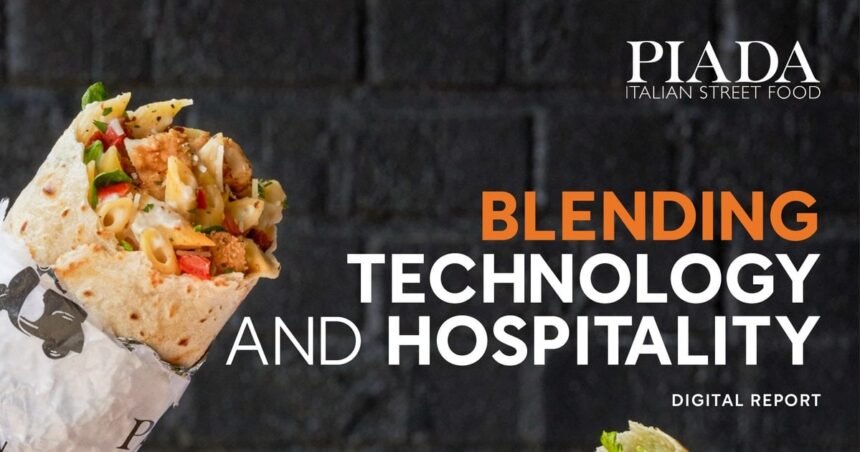Piada Italian Street Food may be a fast-but-casual take on Italian restaurant dining, but casual is the last adjective its Vice President of Technology, Jason Profitt, would associate with its approach to technology.
For Piada, technology is not just about efficiency – it’s about enabling sustainable growth. Founded in 2010, the company now operates 60 locations across seven states in the US, following what Jason describes as a “controlled growth strategy.”
Piada’s menu centres on pastas, salads and its namesake piada – a rolled flatbread inspired by Italian street food.
Jason’s team has their “hands in just about everything” at Piada. The technology function works closely with marketing, culinary, finance and operations departments, as Jason works to power the business from a data analytics perspective.
Technology at Piada
Data integration is central to Piada’s operations. The technology team supports analytics for both internal and external reporting, linking systems such as point of sale, payroll and finance.
“While we’re not the champions of those products, we are involved with them,” Jason explains. “We’re part of the foundation.”
And as AI is increasingly shaping the restaurant industry, Piada is embracing the technology to boost both customer experience and operational efficiency.
Jason says that while many outside the industry may only associate restaurant technology with online ordering or mobile apps, the reality is far more complex and layered.
“We’ve come in and seen a space to put technology solutions in for either the guest or our teams where initially maybe we didn’t initially realise something was possible,” Jason says. “This is fun for me as problem solving is something that I really enjoy. There’s a lot of space at Piada to do that. We’re always thinking about how we drive value to our guests with technology.
“For the technology team, our focus is – and going forward will be – very heavily directed toward guest engagement. How can we invite the guests back through personalised communications? Through tailor-made offerings? Through anything that’s going to be valuable to that specific guest?”
Because of this drive – as well as the value of AI in making the most of Piada’s wealth of data – the company is focusing on building out a data lake and a data warehouse. Piada, historically, operated with a data warehouse model, where data from different systems – such as point of sale, HR and finance – was structured and integrated for specific analytics and reporting needs.
This approach, he notes, is valuable for producing consistent, reliable reports and supporting business operations.
However, Jason reveals that Piada is now moving toward a more flexible data lake approach. With this model, raw and unstructured data from various sources is collected in a central repository, enabling the company to store much larger volumes of information and to analyse it in new ways. This allows Piada to be more agile in how it uses data, supporting advanced analytics, AI and ML initiatives, laying a foundation to enable it to harness the full potential of its data as it continues to scale and innovate.
“Data analytics is going to be a key focus of ours,” Jason adds. “By working on our deployment of a data lake and a data warehouse built on AWS, we’ll be able to query data sets. We already have an analytics dashboard that we’ve built internally that provides a lot of really great insights, but what we’re looking for in the future is ways to query data and surface things that we didn’t know to ask.
“This is where, I think, AI is going to really come into play for us in the future. I see our AI strategy as integral to helping us out – as an assistant in some areas and then the bulk of it channelled into data analytics.”











